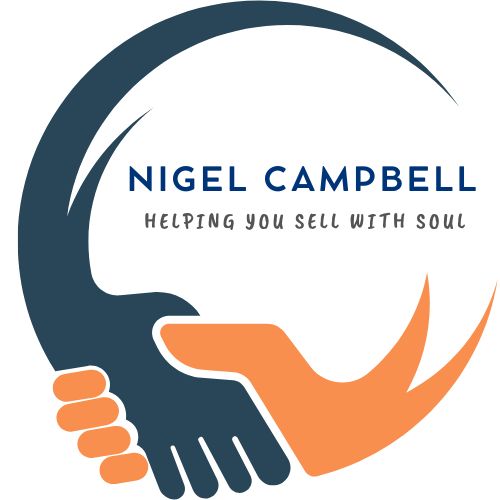What is Small Business Marketing?
Marketing your small business, at the best of times, can feel like you’re swimming against the tide. With problem after problem appearing and it almost feeling like you’re on your own.
However, even as a small business, there is a wide range of tools in your marketing arsenal that you’re probably not even making use of.
Let's run through the in’s-and-outs of small business marketing. Hopefully enlightening you and your small business into the ways you can grow.
Small business marketing isn’t just a single tactic, it doesn’t really differ much from the foundations of any effective marketing strategy. A lot of it is about understanding your target audience and your target market. And knowing the best and cost-effective ways to appeal and reach these buyers with the limited budget that you have.
One common misconception is that if you don’t have thousands upon thousands to spend on a paid advertising campaign then you’re not going to get your business noticed.
This is indeed a misconception. There are plenty of cheaper and more cost-effective ways to advertise your business and get in front of potential customers.
Not everything rests upon investing money to get noticed and gain more leads in marketing.
It’s all again about understanding what your audience wants to know and want to see and utilising all of the tools that you have at your disposal.

Small business marketing and social media
Over the years social media has become almost an invaluable tool to small businesses.
It’s accessible to every business free of charge and allows you to potentially reach an audience of hundreds of millions. And there are more social networks than ever before.
The largest being Instagram, LinkedIn, Facebook, Twitter, Pinterest and YouTube.
These platforms have billions and billions of users. And attracting the most attention on social media is all about timing.
As a business owner, you can’t afford to be waiting around every hour of the day to post during peak times.
That’s why you need to consider social media scheduling tools that schedule your social media posts over respective platforms.
Meaning that you can schedule these posts and then get on with the day-to-day running of the rest of your business with peace of mind.

Develop a plan for your small business marketing
A marketing plan is absolutely crucial to any business of any size. Even more so to small businesses.
It allows you to have a total oversight of your plans, campaign, goals, objectives and progress.
No successful marketing campaign or business has achieved its success with the absence of a marketing plan.
Your marketing plan also helps with your cash flow and budget. Allowing you to see what expenses you’ve got to allow for and what cash will be left over to devote to marketing campaigns. Despite a marketing plan being an essential ingredient to starting up a successful small business, it’s not a process that should be rushed.
Take your time and ensure that your marketing plan is realistic, thorough and comprehensive.
Create a strategy for your small business marketing
Once you have your marketing plan in place, the next step on your small business journey is to develop your strategy. And there are plenty of different strategies to choose from. And the perfect one for your business depends on a range of different sectors.
When we are talking about marketing your small business online there are common factors that should appear in every strategy. These all surround maximising your businesses presence online.
Certain ways to achieve this include coupons and discounts for both first-time customers and also existing customers.
Or to attend local networking meetings in your area to get your company.
When you start to get leads in you’ll want to manage them in the most effective manner possible.
So why not look at implementing a CRM system into your overall marketing strategy so you can manage your relationships both with customers and also with suppliers.

Utilise your digital assets
Your digital assets include your website, social media channels, email list anything in digital form that can create value. So you need to expand your online presence. No matter whether your small business sells products or is in the services sector. You need to utilise your online presence to get the message across to potential customers while growing your brand and sales at the same time.
You need to post stuff that is engaging and will interest people. Content that is fresh and hasn’t just been copied over from one of your competitors and gives the audience an insight either into your industry
And each time you’re sharing something on social media make sure it’s relevant and not repetitive.
You want to try and get your message across and market your brand without coming across as annoying or harassing people.
Social media is social. It’s about wanting people to ask questions about what you’re sharing and about your products.
A top trick is to vary what you are sharing across your social media platforms.
If you have someone who follows you on multiple platforms you don’t want them coming across the same campaign graphic 5 times in a day across the platforms.
It will end up in the best case scenario with them becoming disinterested, or, in the worst-case scenario putting them off your brand altogether.
Get support for you and your business.
As we touched on earlier, when you’re running a small business, it can sometimes seem like you’re up against it with little to no support. However believe it or not there is an abundance of tools, support and resources out there to help small businesses like yours.
Many tools can help you understand your customer behaviour and can help you to tailor your campaigns and customer service to better accommodate their needs. For example, analytics can help you discover what pages are the most popular, and what time of day visitors come to your website.
It’s vitally important to use tools to discover how well your marketing campaigns are doing.
Not every marketing campaign will be successful and that’s something that you should expect right from the start. And so when campaigns don’t go well.
Finding out the reasons why it hasn’t performed will help you learn from these mistakes and avoid making them in future marketing campaigns.
Marketing your small business on a budget
When it comes to effective marketing you don’t have to spend thousands and thousands.
Some of the most effective marketing methods when it comes to both cost and performance cost next to nothing. And if you, prior to reading this blog, presumed that any form of marketing was expensive and required a large budget, you wouldn’t be alone.
THERE ARE PLENTY OF COST-EFFECTIVE WAYS TO MARKET YOUR BUSINESS, BRAND AND PRODUCTS.
Some cost-effective methods of marketing your business worth a mention include releasing your own referral service. Incentivising your current customer base to refer to their friends.
It may also be worth considering a joint ventures. What we mean by this is let’s say you’re a website design agency, but you don’t cover SEO, it may be worth considering a joint venture with an SEO firm.
Meaning that you’re incentives through bonuses or referral fees for referring that client and vice-versa.
Utilising Analytics
Making the most out of information gained from analytics on your website and social media pages can help you understand consumer behaviour.
Insights can be priceless when it comes to adjusting the customer journey and enhancing touchpoints on your website.
It can also help you discover and understand areas of weakness on your website. For example, if a page has a significantly higher bounce rate than others on your website. You may want to look at why this is.
- Is it the price point?
- Is there any product information this page is missing?
- Is the CTA strong enough?
Google Analytics is by far your best choice when it comes to analytics software. It integrates with any website and can provide you with a wide range of insights from understanding where traffic is coming from, to bounce rates, to even tracking conversions...
Start email marketing
Email marketing has been one of the most powerful and cost-effective ways of marketing for a number of years.
When it comes to modern-day marketing many people immediately think of SEO and paid marketing campaigns.
However, email marketing can be just as, or if not more effective.
But only if it is done right.
It all requires preparation. From segmenting your customers, getting the timing right to ensure that the content will appeal to those it is sent.
Again there are plenty of free and paid-for tools and resources at your disposal that can help you in understanding how well your marketing campaign has performed and can also highlight areas of improvement.
Mailchimp is a great example of an email marketing campaign tool that can not only help you design and prepare your email but can also give you great insights such as the click-through rate and track and conversions that subsequently occur as a result of this.
Consider sales training to support your small business marketing efforts
If your marketing is going well and you are attracting plenty of new leads and prospects, but your business is not growing.
Then you may have a selling problem, it might be worth considering taking up some sales training for yourself to improve your conversion rate. Sales training is the only thing that separates a successful business from a struggling one. If you want to build a successful small business, you need to master the art of selling.
To grow your business, it’s important to invest in the right sales training. You need to know how to communicate with customers, persuade them and close deals. That’s why you should consider investing in sales training for yourself or your staff.
Sales training for small business owners can be done in a number of ways. A popular option is to seek out local seminars or workshops that are taught by experts in the field. Another option is to purchase online training programs that are specifically designed for people who run small businesses.
Start blogging to improve your exposure to a new audience
Blogging has a lot more benefits to your website, brand and overall digital marketing strategy than you could imagine. Not only is it great for SEO and providing you with content to share across your social media channels, but it is much more.
For example blogs shouldn’t only be seen as a way to promote your products or services, they can also be a great way to give your audience a background to your industry and the reason behind why your business was established.
It is also a great way to engage with your audience and conduct market research.
To ask for feedback on proposed products and services to understand the consumer demand as part of your research prior to making a decision as to whether to launch that product.
Blogging also, at the same time, can be a great way to market new products.
Lead magnets for example can be a great way to give people a taste or trial of your product which could lead to potential future sales.
Summing it all up
Hopefully I have shed some light on some great ways you can start expanding and improving your marketing strategy within your small business. The main point to take away from this is that there is plenty of support, resources and tools there to help you and your small business.
You can market your business, its products and services without having a huge campaign budget.
If you want to know more about how sales and marketing can help your business feel free to get in touch.
